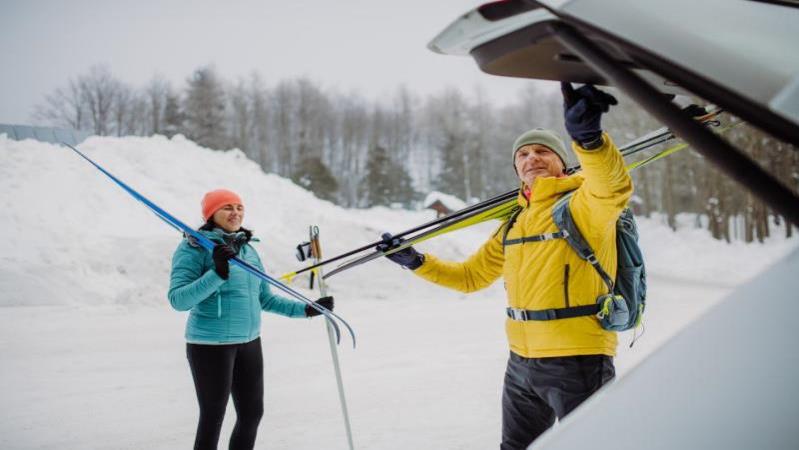Does travel insurance cover adventure sports and high-risk activities?
TravelArticleOctober 31, 2023
Everyone likes a bit of excitement on holiday. Once in a while, many travelers will test their limits with exhilarating activities such as bungee jumping, skydiving, skiing, hot air ballooning, scuba diving, and so on to get an adrenaline rush. These types of sports can give you a thrilling experience, but they also come with some serious risks that can be both physically and financially devastating. When accidents occur, can travel insurance cover your medical expenses and loss? Does it cover all types of adventure sports? Read on to find out more!
The definition and coverage of adventure sports/high-risk activities
What exactly are adventure sports? Which sports or activities are included?
The term “adventure sports” (or “high-risk activities”) is widely used but rarely defined precisely. It broadly refers to a wide range of categories of outdoor activities that are especially characterized by elements of risk, which often require a higher level of physical and technical ability from the participants. Here are some common examples:
Water-based adventures:
- Scuba diving
- Snorkeling
- Windsurfing
- Kayaking
Land-based adventures:
- Mountain climbing
- Horse riding
- Marathon
- Trekking
Sky-based adventures:
- Hot air ballooning
- Parachuting
- Bungee jumping
- Paragliding
Winter sports:
- Skiing
- Snowboarding
While travel insurance does cover medical and hospitalization expenses if the insured are injured on their trips, given the risk of injury associated with adventure sports are higher than normal activities, travel insurance policies will usually have restrictions and exclusions on claims related to these types of high-risk activities.
What are the exclusions to keep in mind?
Not all adventure sports are created equal. Some of them are mildly risky while others can be more dangerous for amateurs. That’s why some insurance companies will exclude certain perils and scenarios from the coverage. Here’s a list of some major conditions and exclusions you need to be aware of:
| Activities | Conditions & Exclusions |
|---|---|
| Water-based adventures | |
| Diving | The insured cannot dive to a depth greater than 30 to 40 meters below sea level |
| Speedboating | The insured must wear life jackets or other safety equipment |
| Land-based adventures: | |
| Trekking | The insured cannot trek at an altitude greater than 5,000 meters above sea level |
| Mountaineering, expeditions | The insured must wear adequate safety equipment (extreme sports are often excluded) 1 |
| Marathon, or any tour with bicycle riding as the main transportation | *Often excluded (some policies may offer optional coverage, but it must be recreational/amateur/non-professional in nature) |
| Sky-based adventures: | |
| Hot air ballooning | The activity must be operated by licensed professionals, and the event must be authorized and approved by the relevant authorities. |
| Bungee jumping | *Participants may need to sign a liability waiver and agree to the risks |
| Paragliding | The activity must be conducted under the supervision of a licensed instructor (Only applicable to recreational paragliding) |
| Parachuting | *Height limit applied (only applicable to recreational base jumping) |
| Winter sports | |
| Skiing | Height limit applied; the insured must ski within the course while using appropriate skiing equipment |
*The above conditions and exclusions are for illustration purposes only, please refer to the policy provisions for details.
Also, keep in mind that different insurance companies will have different rules on what classifies as “high-risk activities” or “adventure sports”, so you should always check with your insurer to see if the activity you’re participating will be covered, and what exclusions may apply.
Professional sports or competitions are not covered!
Travel insurance only reimburses your medical expenses if you’re injured while participating in sports on an amateur basis. This means that if you are a professional athlete or participate in any sports/activities that are played in a professional capacity, the consequential loss or expenses will not be covered by the policy. Some insurance companies will even exclude any types of compensation for extreme sports; only lower-risk activities that are accessible to the general public will be covered, but they must be conducted under the supervision of qualified personnel.
Marathon, however, is a special case. Even if the insured participates in a marathon purely for recreational or leisure purposes, most insurance companies will not cover any losses associated with it. Some insurers may offer optional add-ons and riders for marathons, but such coverage is limited to non-professional runners and intended solely for leisure purposes.
Zurich “Breezy Travel” Insurance Plan offers optional coverage for amateur sports including training or course. If you’re unable to attend the sports activity due to trip interruption, or if your sports equipment is accidentally damaged/lost, we will cover the associated costs and expenses.
What does travel insurance cover if you’re injured?
In the unfortunate event of an accidental injury while engaging in high-risk activities, the insurer will usually provide the following 2 major coverage types, as long as the accident doesn’t fall under the major exclusions mentioned earlier:
1. Overseas medical expenses and hospitalization
If you’re injured and need medical care or hospitalization as a result of participating in a covered sport, the related expenses will be reimbursed by your insurer. For example, Zurich “Breezy Travel” Insurance Plan offers up to HKD 1,500,000 medical expenses benefit.2 And if you need a follow-up medical treatment within three months from returning to Hong Kong, the related medical expenses will also be covered.
You can also purchase additional coverage tailored to the specific sport or activity, which can compensate you for the loss of sports equipment, as well as incidents such as cardiac arrest, coma, and exertional heat stroke.
2. Emergency medical evacuation and the repatriation of remains
In the unfortunate event of severe injuries such as burn, temporary/permanent disability, or even death, the insurer will provide coverage for emergency medical evacuation or repatriation, which includes the cost of transportation, medical services, the expenses for repatriating the remains back to Hong Kong, and the cost of local burial at the place of death.
Zurich HK also offers compensation of up to HKD 300,000 for burn accidents2. And in the unfortunate event of the insured's death, their family will receive a death gratuity of up to HKD 30,000.
Tips on making claims
If you’re injured while engaged in an activity covered under the insurer’s adventure sports policy, remember to submit your claim within 30 days from the date of incident. For more information on the claims process and required documents, please refer to our claims page.
Note:
- Travel insurance policies often exclude activities or sports that involve a high level of expertise, or exceptional physical exertion, or exposure in extreme environment, or use of specialized gear or equipment; such as expeditions, treks, equipped mountaineering.
- Applicable to Prime Plan only
Breezy Travel Insurance Plan
- Offers three plan levels with six optional benefits1 for your different travel purposes
- Provides multiple travel coverages, including medical expenses benefits and trip cancellation or interruption benefit
- Covers your personal property, including your mobile phone1 and laptop computer1
1Applicable to selected plan(s) only, please refer to the (a) Product Page and (b) Policy Wording for further details.

Enjoy an online exclusive 20% discount on the premium for single-trip travel plans and first-year premium for annual-trip travel plans with promo code "TRAVEL20". Promotion valid until May 1, 2025. Terms and conditions apply.
